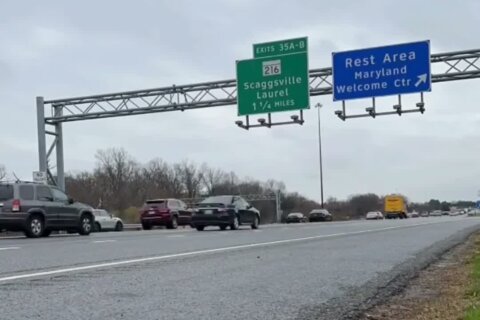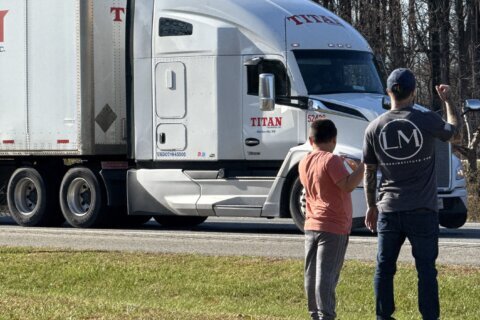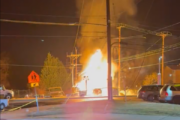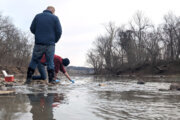
It’s a Thanksgiving Day tradition, not only for New York but for a TV-watching nation as well: the Macy’s Thanksgiving Day Parade.
In 2019, it will start at 9 a.m. ET, Thursday, November 28.
There’s a chance that the parade’s iconic balloons won’t fly this year. Windy conditions are forecast, and the balloons cannot be flown when sustained winds exceed 23 mph and gusts exceed 34 mph, per city regulations. Officials will likely make the call on Thursday.
Here are six fun historical facts about the parade:
1. It was originally a Christmas parade
The original store was about 20 blocks south on Sixth Avenue near 14th Street. Macy’s has been at its current flagship location, at Broadway and 34th Street, since 1902. Continuing expansion made the location what Macy’s called the “world’s largest store,” an entire city block with more than 1 million square feet of retail space.
In celebration, employees organized a Christmas parade in 1924 featuring “floats, bands, animals from the zoo and 10,000 onlookers,” according to a Macy’s history page. It also started way up at 145th Street. The parade concluded with Santa Claus and the unveiling of the store’s Christmas windows. Three years later, the Christmas Parade was renamed the Thanksgiving Day Parade.
Macy’s didn’t invent the practice. Philadelphia has the oldest Thanksgiving Day parade: Its Gimbels Thanksgiving Day Parade, now the 6ABC – Dunkin’ Donuts Thanksgiving Day Parade, debuted in 1920.
2. The balloons have been around almost since the beginning
According to Mental Floss, the balloon attractions debuted in 1927, inspired by a balloon float. Even then, they were massive — one was a 60-foot dinosaur — and, in those days, they had more to deal with than just high winds and crazy weather: Until 1938, an elevated train ran down Sixth Avenue.
Well-known characters have been part of the parade since that 1927 outing. Felix the Cat was there from the beginning, and Mickey Mouse joined in 1934, the same year that featured a balloon based on popular entertainer Eddie Cantor. “Peanuts” characters, especially Snoopy — who made his first appearance in 1968 — are regular visitors.
One tradition didn’t last long. The balloons were originally allowed to float away, and those who found them got a gift certificate from Macy’s.
3. The parade was first broadcast on the radio
You had to use your imagination when the first broadcasts of the parade took place in 1932; they were on the radio. The parade was first televised in 1946 in New York and then nationally on NBC the next year.
4. Fans can watch the balloons get inflated
It’s hard to keep things hidden on an island as cramped as Manhattan, and the Macy’s balloons are no exception. They’re inflated at a staging area at 77th Street and Central Park West, near the American Museum of Natural History. For many families, watching the balloons get ready is just as much a tradition as the parade itself.
The balloons are constructed at Macy’s Parade Studio in Moonachie, New Jersey.
5. The route has changed over time
For years, the parade’s Midtown route went right down Broadway, Manhattan’s spine. But in 2009, the route was moved to Seventh Avenue because of new pedestrian plazas along Broadway. It was changed to Sixth Avenue in 2011. Given the parade’s draw as a tourist attraction, this did not go over well with some folks.
For 2019, the route will start at 77th Street and Central Park West, where it takes a left turn at 59th Street. It will continue to ride past Central Park until reaches Sixth Avenue. From there, it will head down straight down to 34th Street, where it will hang right and end at the flagship store.
6. It hasn’t always gone well
It looks so nice on television, doesn’t it? But late November in New York can be dicey.
In 1957, a wet day got wetter for people near a Popeye balloon: The character’s hat filled with water and drenched parade watchers. The same thing happened in 1962 with a Donald Duck hat.
Superman once lost his arm to tree branches.
But the worst was probably 1997, a blustery day in the Big Apple. During that parade, winds reached more than 40 miles per hour, and the balloons were difficult to control.
One balloon struck a lamppost and injured four people; one woman was in a coma for a month. The Pink Panther threatened a woman holding its ropes.
“The balloon was caught on top of me and my daughter,” she told The New York Times. “We thought it was going to smother us.”







